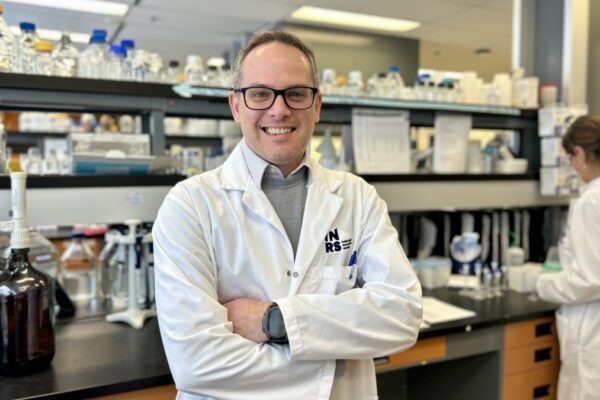- Academic Life
-
YOU ARE
- Community member
- Future Student
- Student
- Professor
- Alumni
- Media
- Guidance counsellors
- INRS retiree
- Contact Us
- Newsroom
- Careers
- FR
-
Studies
We teach the next generation of researchers to develop scientific, social, and technological innovations.
-
Research
We find solutions through interdisciplinary research and industry or public and community partnerships.
-
INRS
We play an active role in Québec's economic, social, and cultural development.
A look back at an outstanding scientific event organized by INRS in collaboration with RNA Quebec.

Emmanuelle Charpentier, Microbiologist and Geneticist, Nobel Prize in Chemistry 2020 Crédit photos : Simon Clark
The Institut national de la recherche scientifique (INRS), in collaboration with RNA Quebec, was privileged to welcome world-renowned microbiologist and geneticist Emmanuelle Charpentier, winner of the 2020 Nobel Prize in Chemistry, for a lecture on her revolutionary discovery of the CRISPR-Cas9 mechanism and its major impact on the fields of biotechnology and medicine.
The lecture, which took place on Saturday, May 10, in the ÉNAP auditorium, brought together nearly 200 people in attendance and online—researchers, students, dignitaries, and partners—for an inspiring moment in which Professor Charpentier shared behind-the-scenes stories of her groundbreaking work in microbiology and gene technology, as well as highlights from her career.
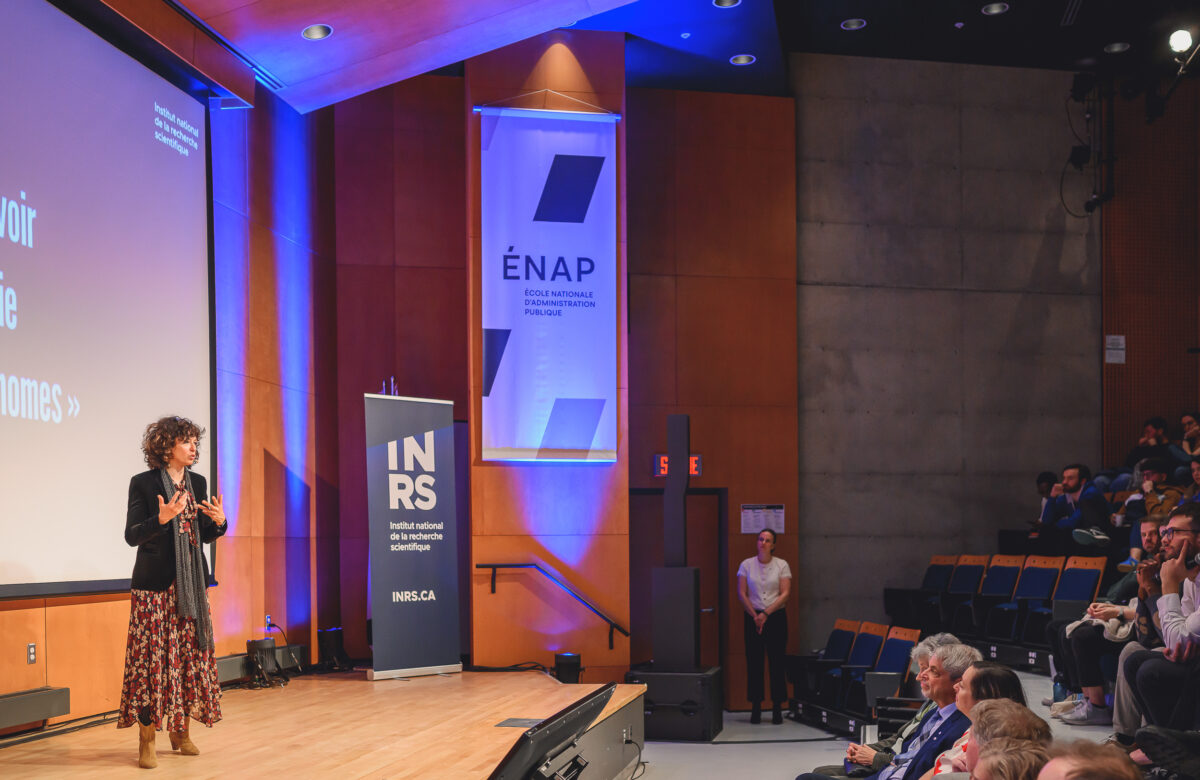
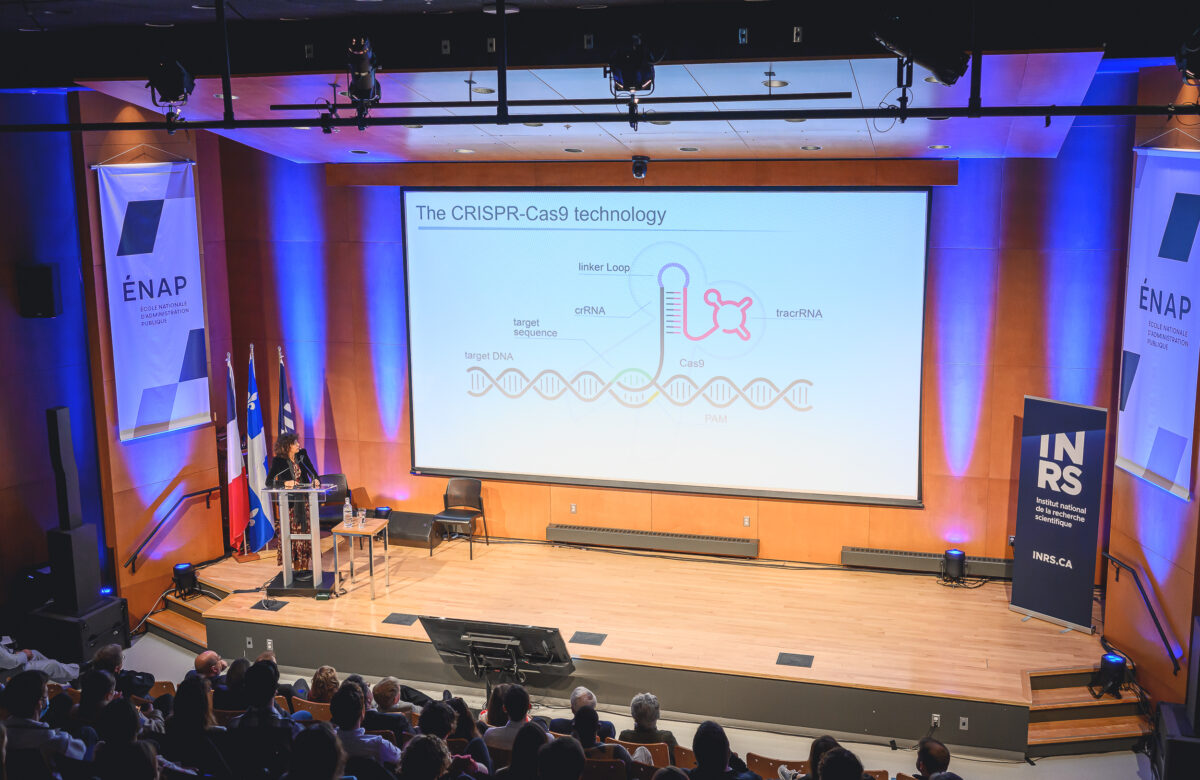
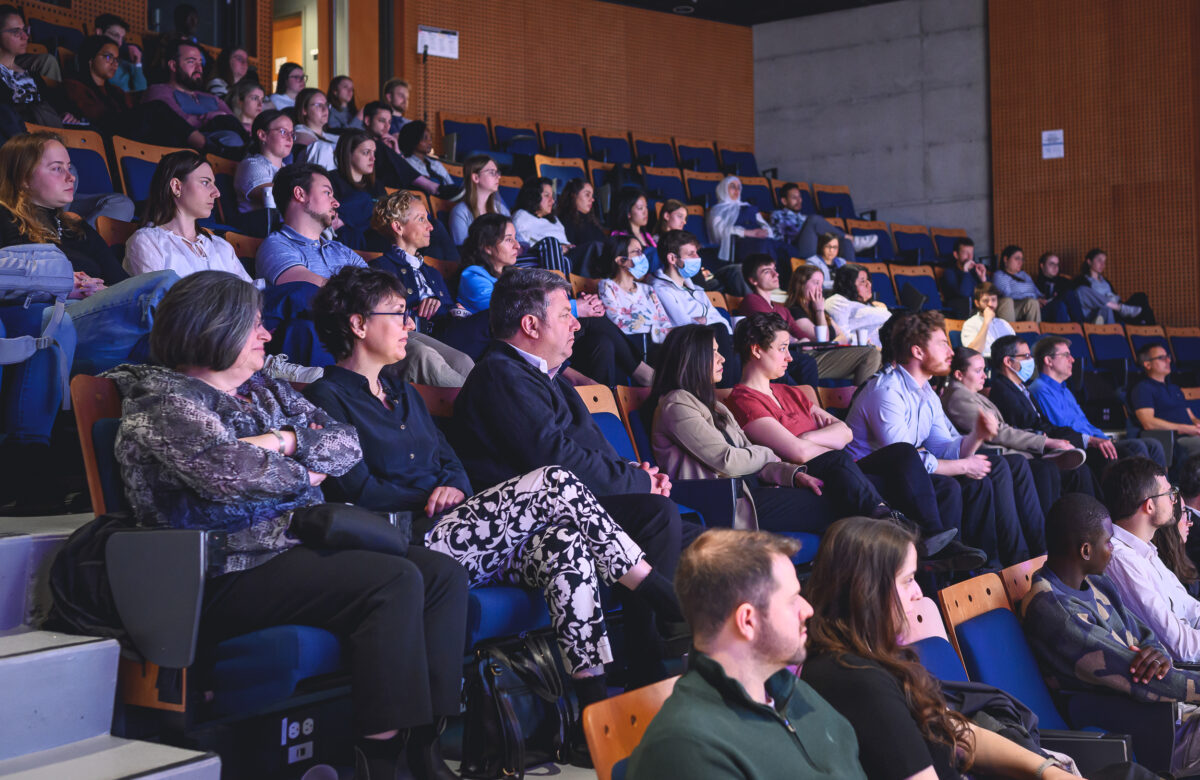
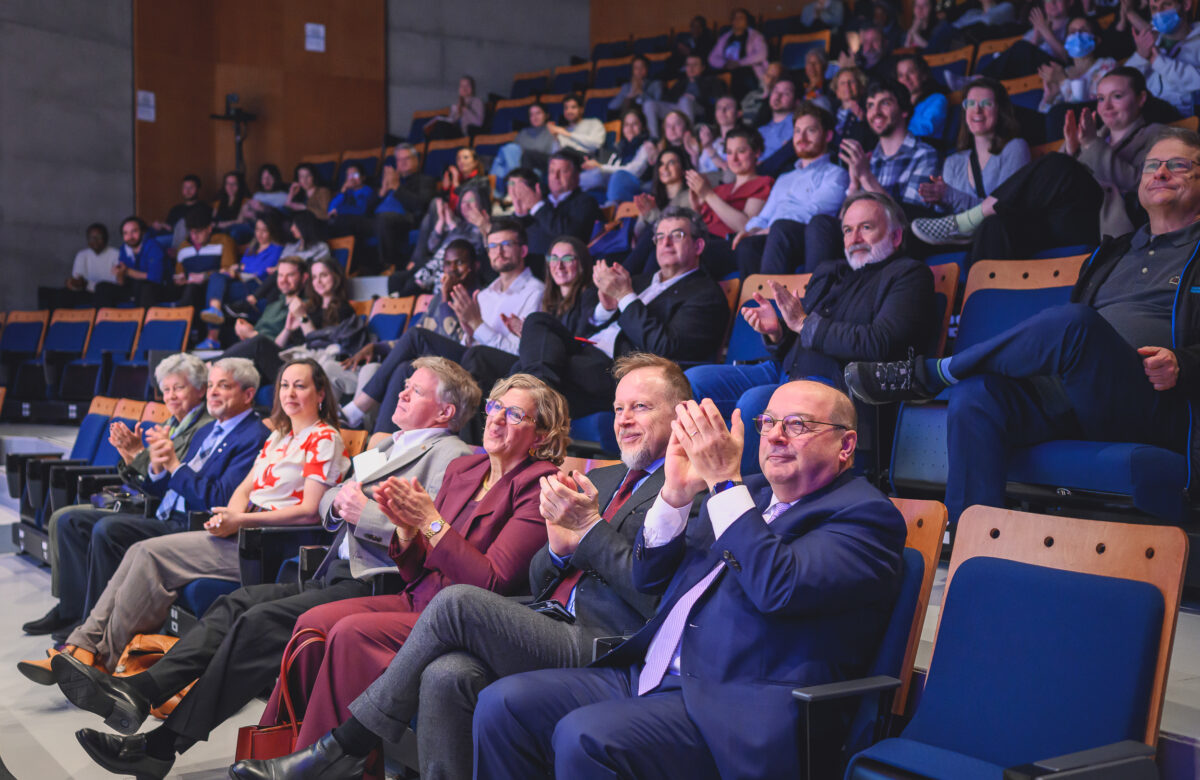
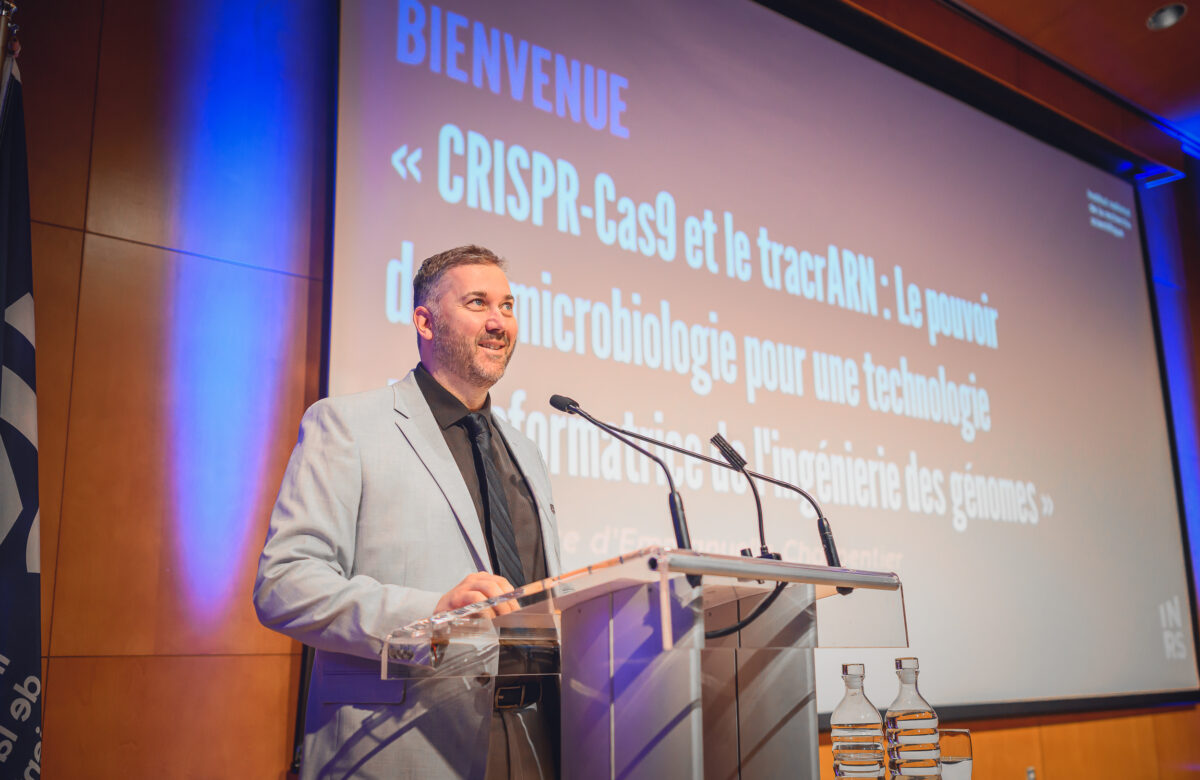
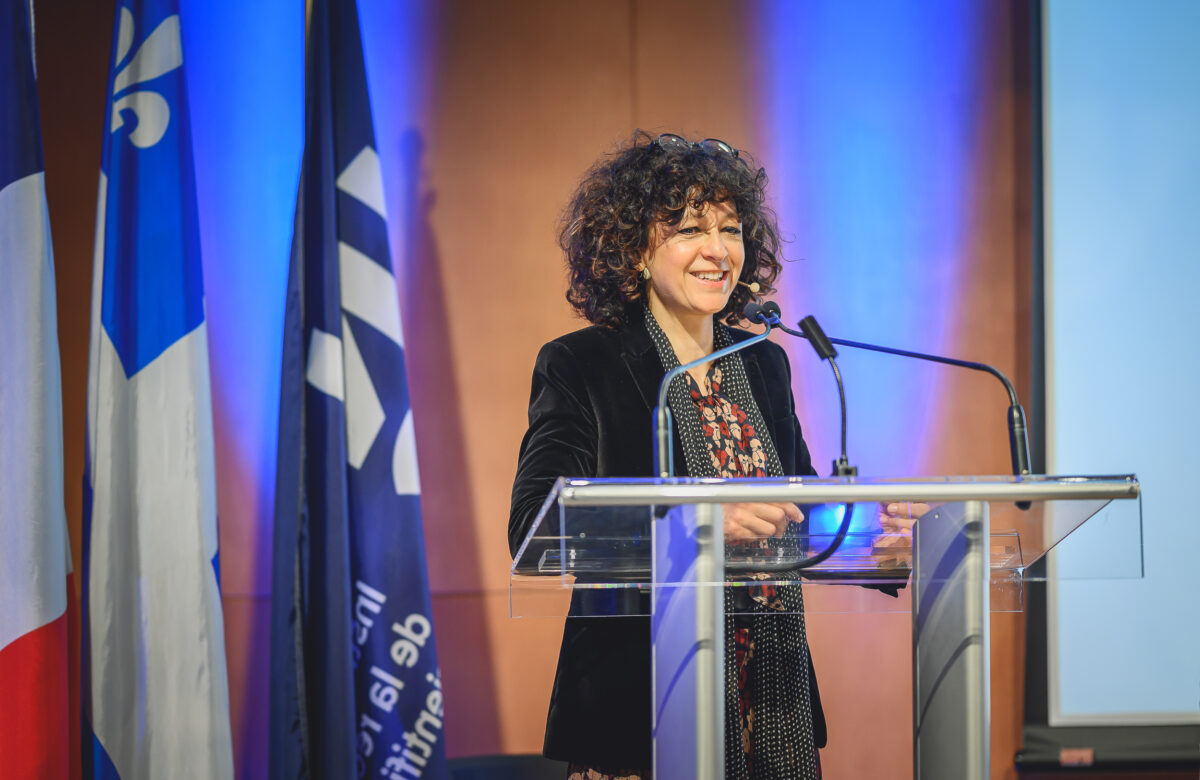
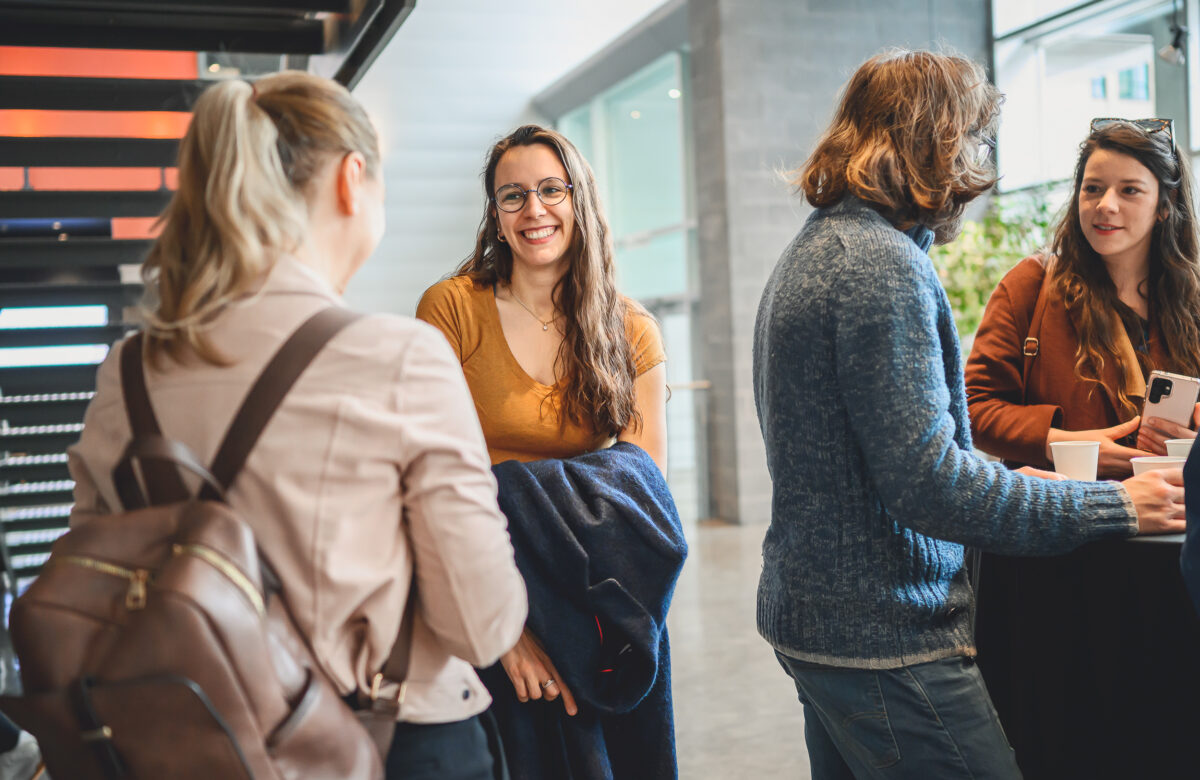
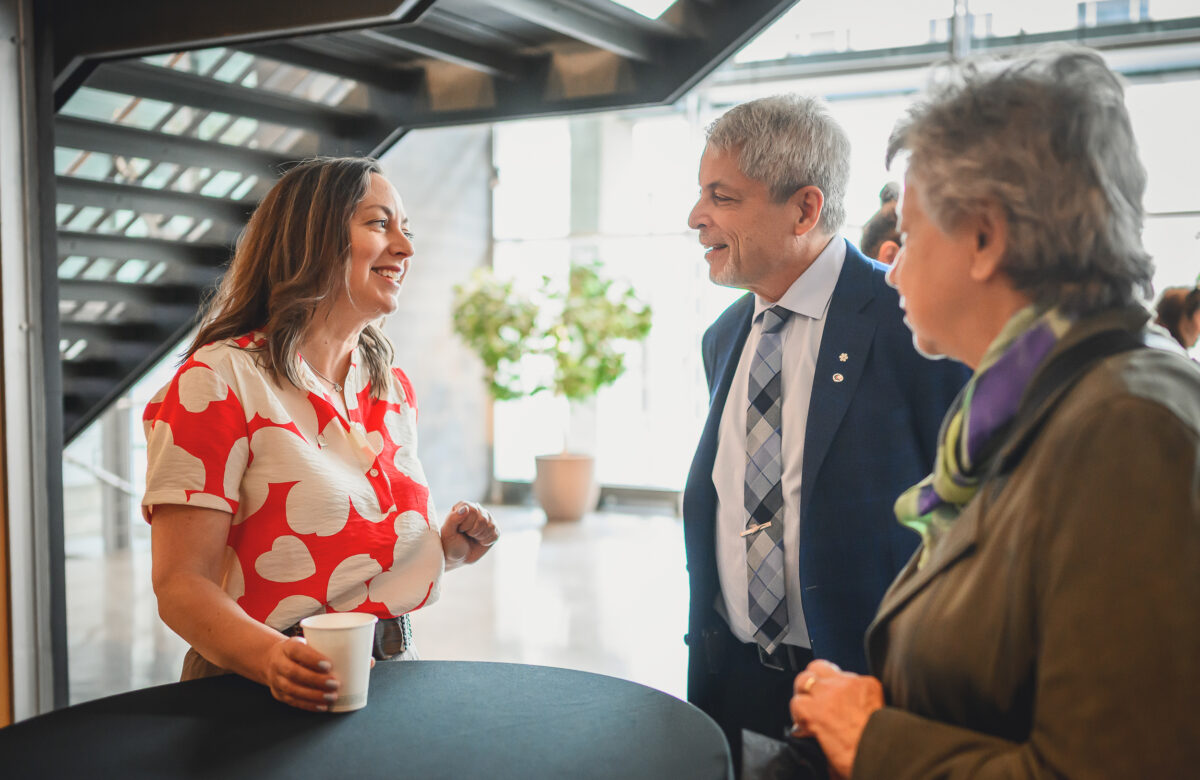
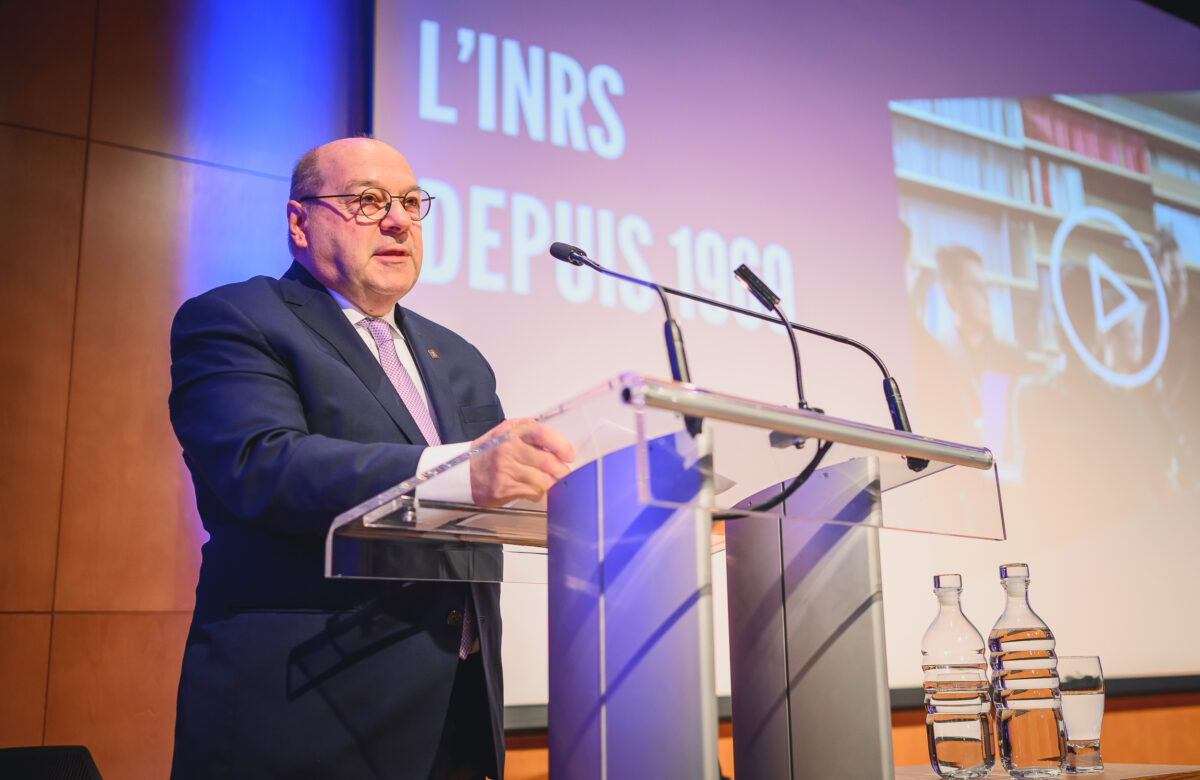
Luc-Alain Giraldeau, directeur général de l’INRS
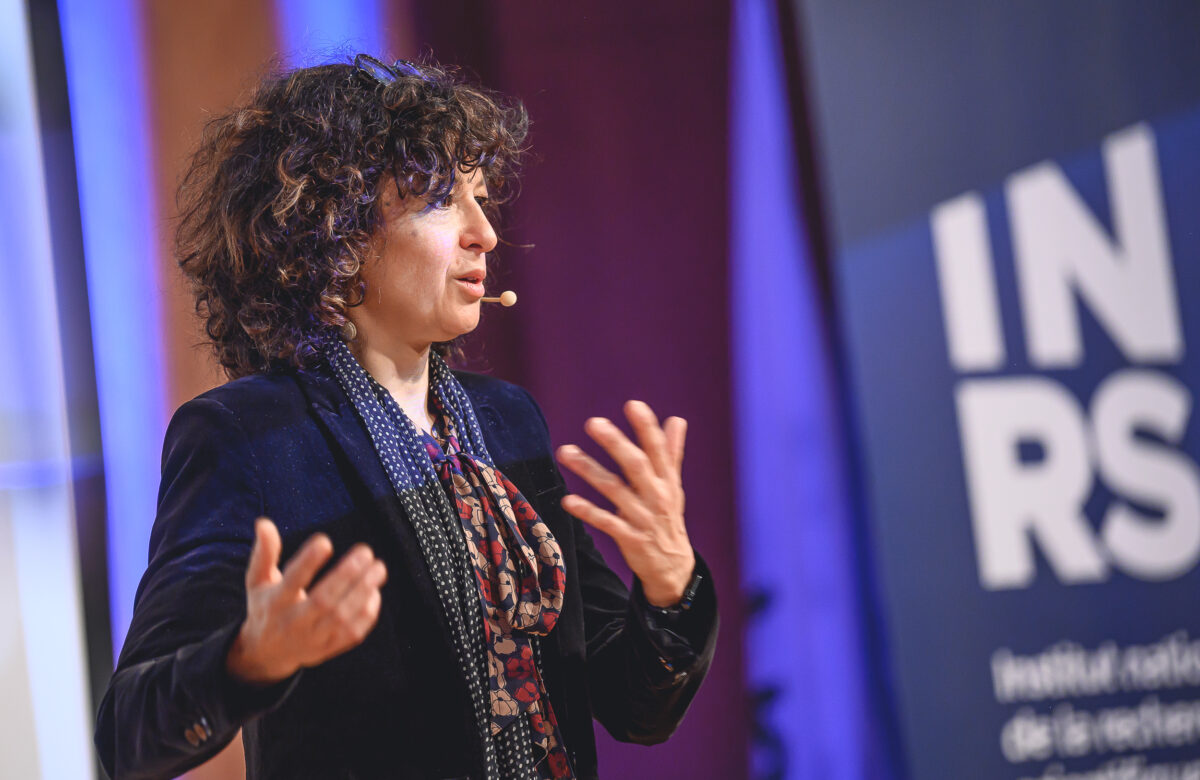
Emmanuelle Charpentier, microbiologiste et généticienne, prix Nobel de chimie 2020
“This presentation is a unique opportunity to inspire our community,” said INRS chief executive officer Luc-Alain Giraldeau in his welcome to the audience.
In his comments, Mr. Giraldeau highlighted Professor Charpentier’s groundbreaking work in genetic engineering, which continues to have a considerable impact on our understanding of the molecular mechanisms of infection.
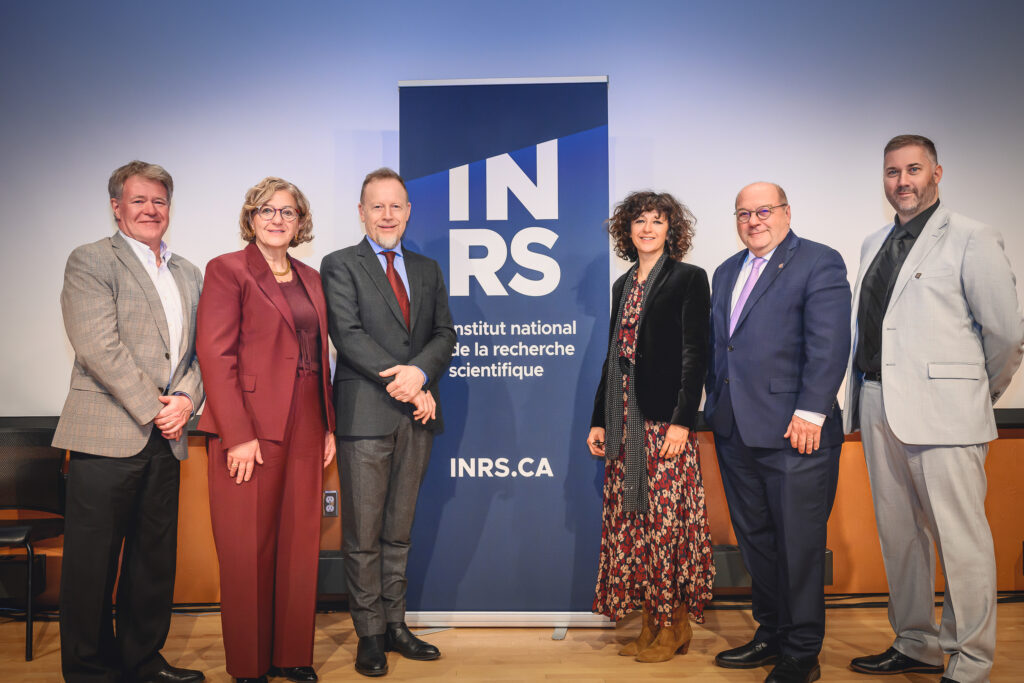
Barbara Papadopoulou, Director of RNA Quebec, outlined the mission of this strategic research and innovation consortium, which is to promote RNA research and accelerate the development of innovative applications to meet Québec’s major challenges in the fields of global health and the environment.
The Consul General of France in Quebec City, Éric Lamouroux, took the opportunity to underline the importance of scientific cooperation between France and Quebec. He noted the existence of more than 1,400 university agreements between the two jurisdictions, emphasizing our need as a society to look increasingly to science to meet contemporary challenges.
Professor Sylvain Moineau of Université Laval painted a touching portrait of his fellow researcher and friend, Emmanuelle Charpentier. The Quebec researcher has made major contributions to CRISPR-Cas9 technology, in collaboration with French and American colleagues, and his work served as the premise for Charpentier’s and her American colleague Jennifer Doudna’s discoveries.
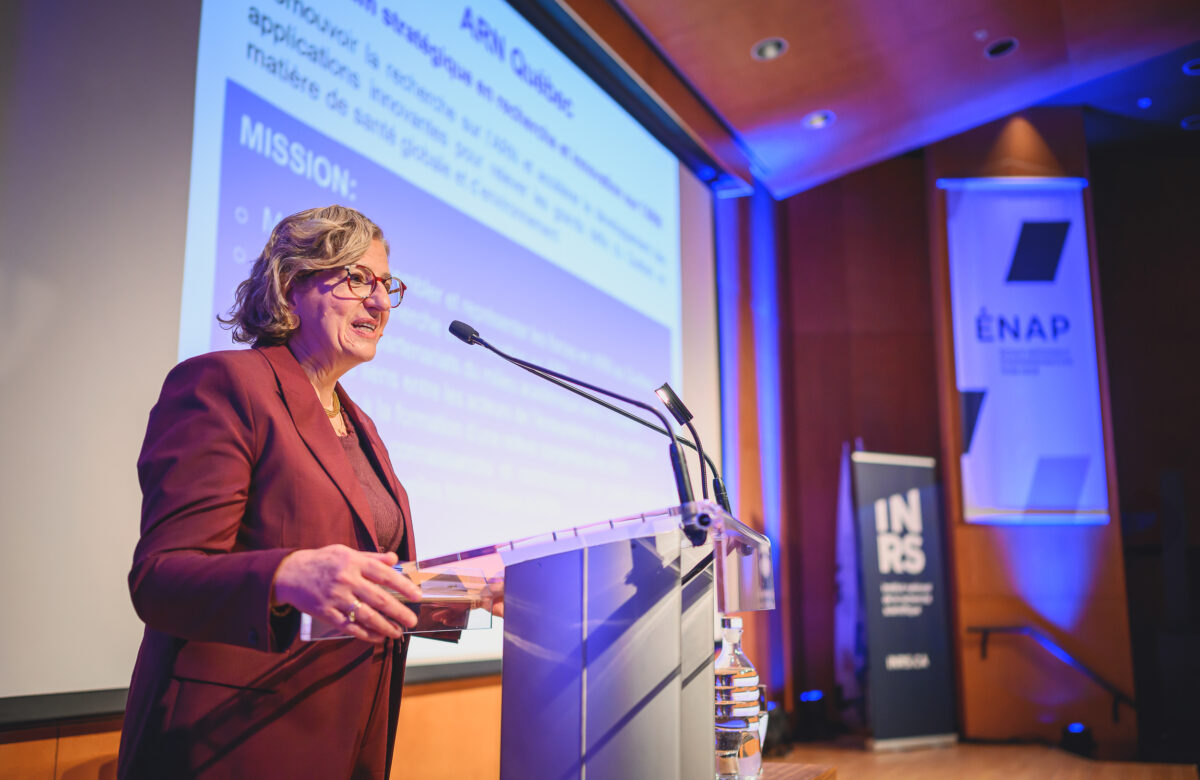
La directrice d’ARN Québec, Barbara Papadopoulou
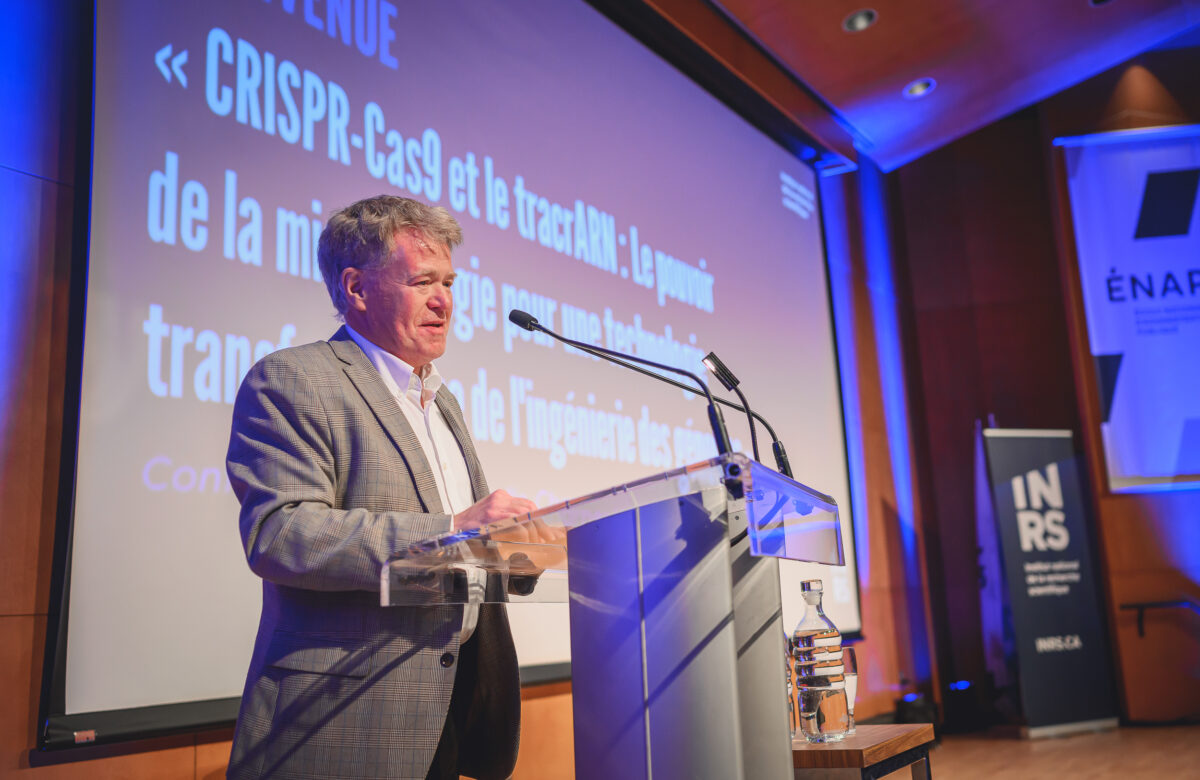
Le professeur Sylvain Moineau de l’Université Laval

Le consul général de France à Québec, Éric Lamouroux
The morning was a resounding success and a real source of inspiration for the audience, particularly those just undertaking their careers in research. Many young scientists were eager to chat with the researcher and have their photo taken with the woman who has been dubbed the “rock star of biology” by the French media.
“The key to research and science is to have energy, drive, and curiosity. You have to jump at opportunities when they present themselves. We often make a lot of mistakes, and that’s normal. Science is all about people!
Emmanuelle Charpentier, Microbiologist and Geneticist, Nobel Prize in Chemistry 2020.

The event was held in conjunction with the INRS graduation ceremony, during which Professor Charpentier was awarded an honorary doctorate by the Université du Québec under the auspices of INRS.
You may also like
Share

